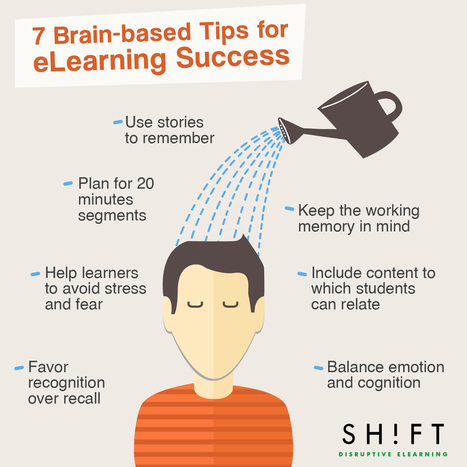The brain is constantly on the lookout for ways to improve by obtaining new knowledge and skills, even before birth. Unfortunately, retaining information can be challenging, simply because instructors and course designers do not always use methods that facilitate remembering. The following seven points look at key principles from neuroscience research paired with tips that will allow course creators to achieve effective eLearning development.
Research and publish the best content.
Get Started for FREE
Sign up with Facebook Sign up with X
I don't have a Facebook or a X account
Already have an account: Login
All about Educational Innovation, new tools & trends, MOOCs in Higher Education
Curated by
Alfredo Corell
 Your new post is loading... Your new post is loading...
 Your new post is loading... Your new post is loading...
|

A/Prof Jon Willis's curator insight,
September 19, 2013 5:59 PM
I like these principles (and I like that there is some research to establish why they work) 
Phil Turner's curator insight,
September 19, 2013 7:00 PM
Not enough references, and not direct references, which is what my "yet to be convinced" colleagues are looking for ... but the principles are logical and probably good starting points for a bit of further reading and discussion in development workshops for professional development of higher ed teachers |












Must read.
food for thought
Muy interesante y útil.